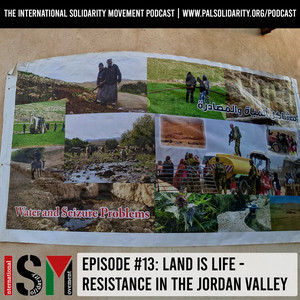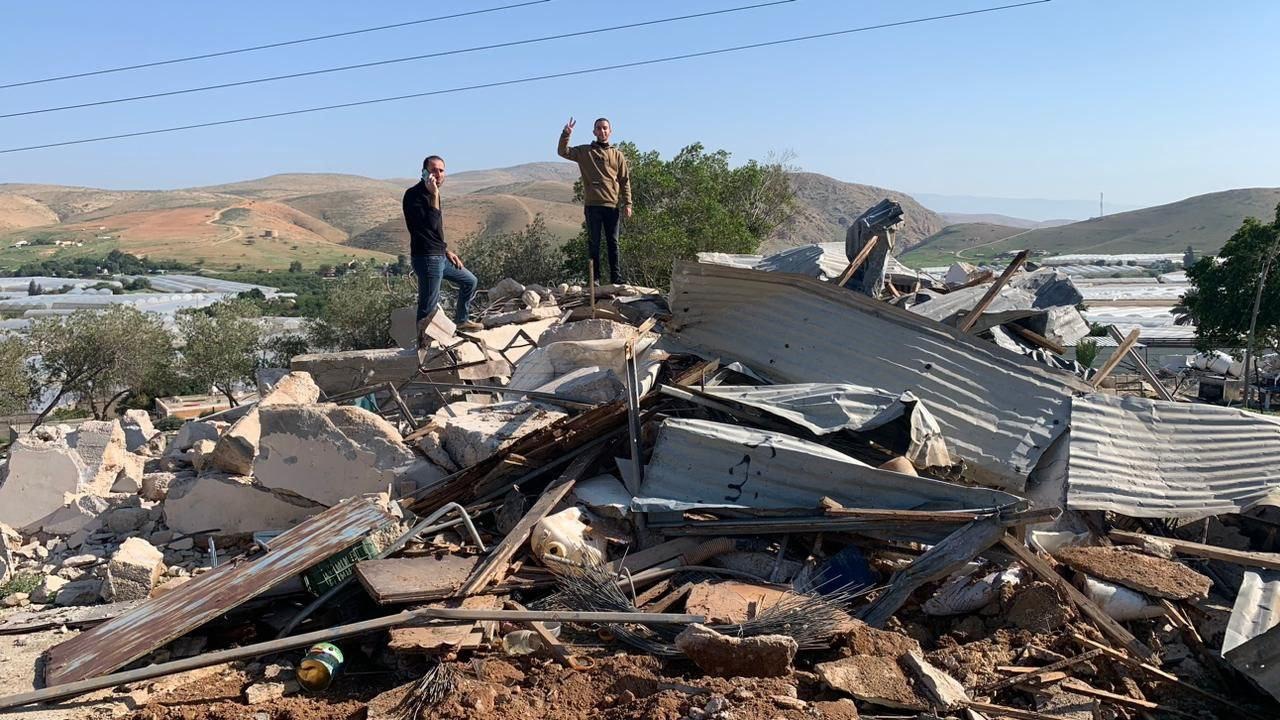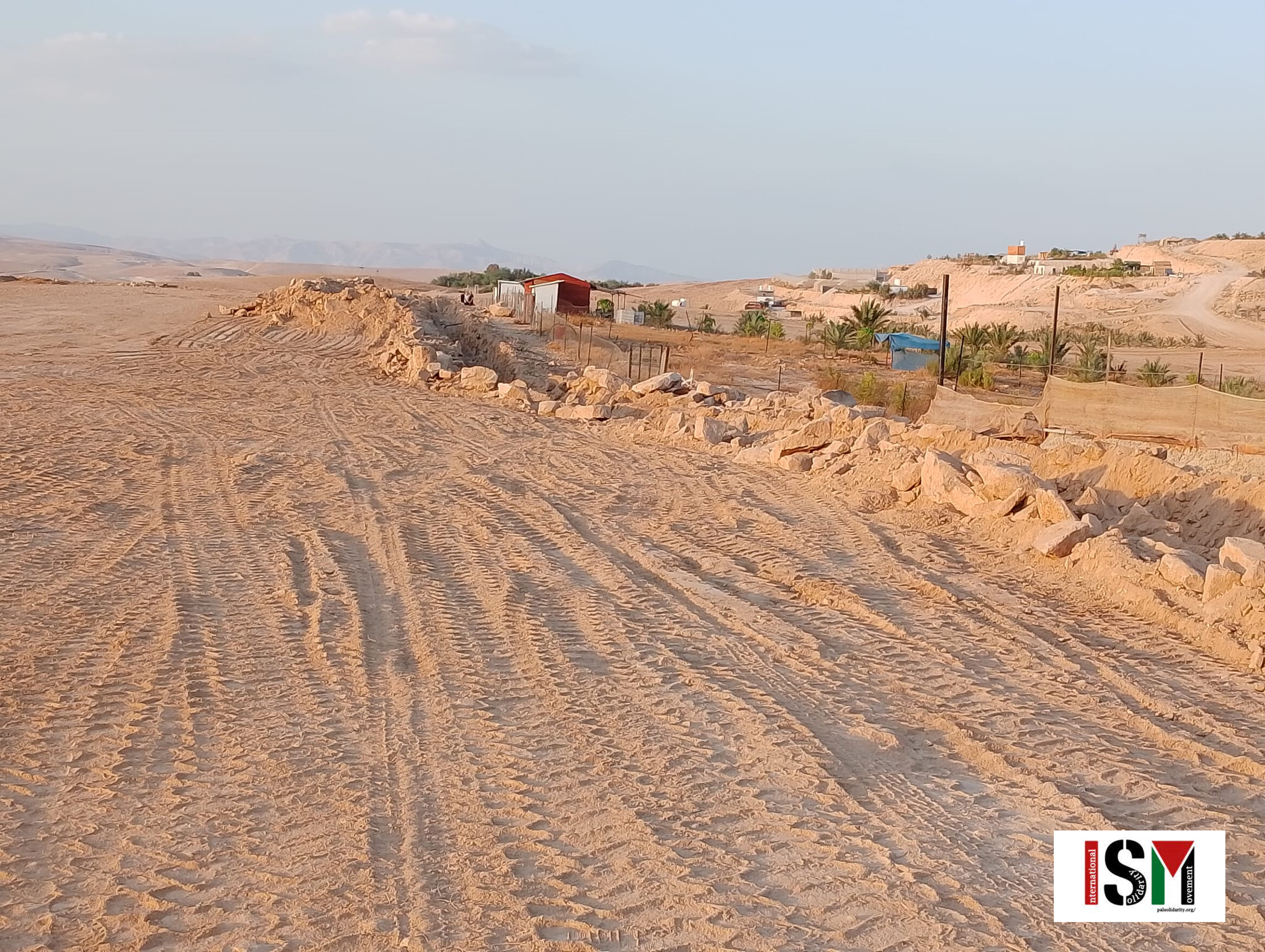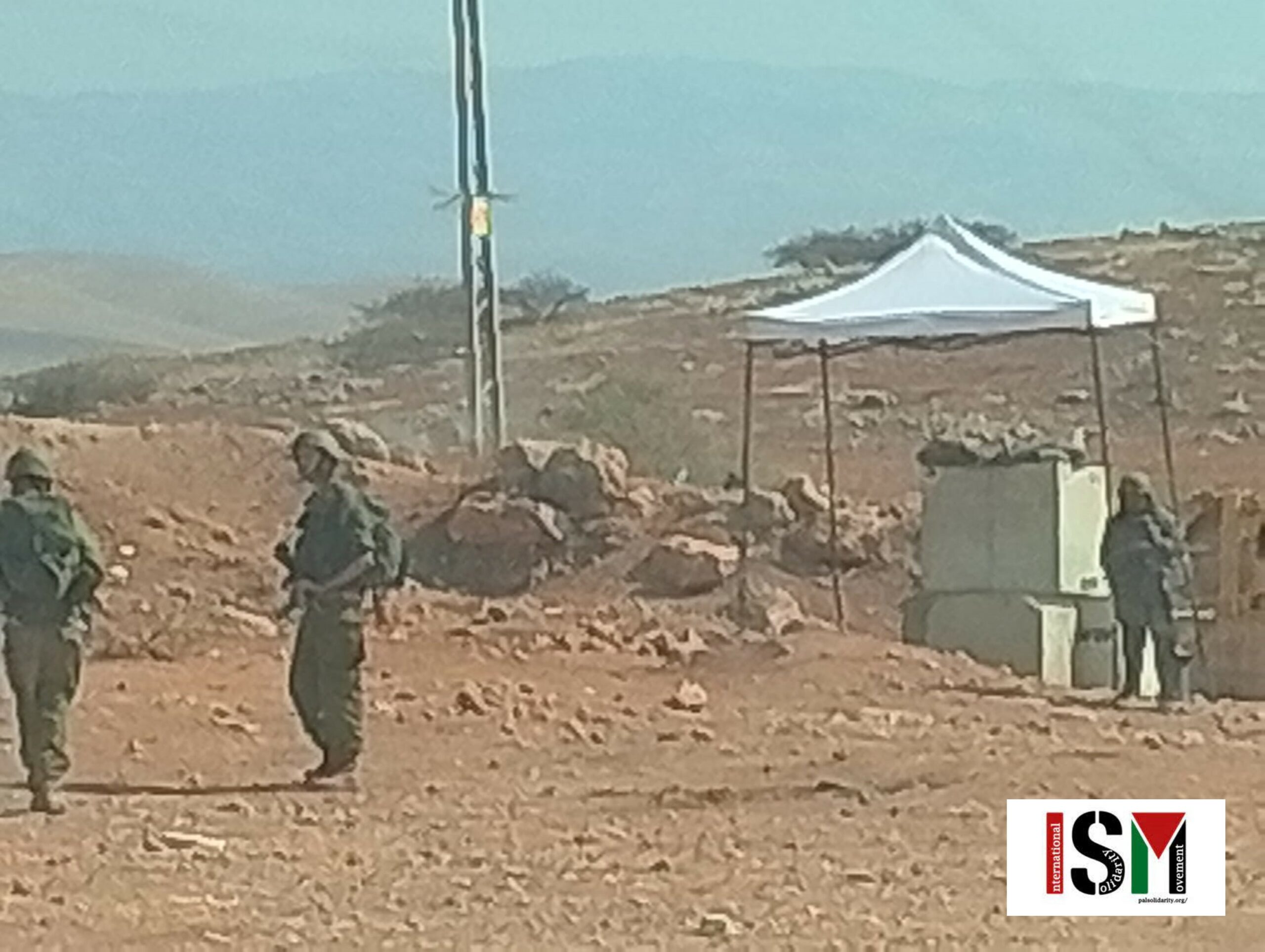Tag: Jordan Valley
-

Israeli Settlers Harassment in the Jordan Valley
15 July 2024 | International Solidarity Movement | Jordan Valley Activists and members of the International Solidarity Movement (ISM) recently faced harassment while working in a popular tourist spot in the Jordan Valley. The activists focused their efforts on Ras Al-Auja (Ras Al-Ein) where water access is severely restricted for Palestinians, often limited to a…
-

ISM Podcast episode 13 – Jordan Valley Solidarity
This episode of the International Solidarity Movement Podcast was recorded last year, long before the current Israeli genocidal attack against Gaza began. Since te interview took place the situation in the Jordan Valley has got much worse. Jordan Valley Solidarity (JVS) is still working to support the people of the Jordan Valley to stay on…
-

Human rights abuses in the Jordan Valley
29 December 2023 | International Solidarity Movement | Jordan Valley The following article is a snapshot of how life is under occupation and brutal settler colonialism for the Palestinian communities in the Jordan Valley. These incidents are just some that took place on one day (Friday 29th December). Israeli Occupation Force (IOF) soldiers, along with…
-
Land injustice in the Jordan Valley and a call for action
21 October, 2023 | International Solidarity Movement | Jordan Valley The ISM visited the land of Ahmed, a resident of the Jordan Valley. Ahmed’s land falls in both Area A (under the Palestinian Authority control) and Area C (under civil and military Israeli occupation). He has a house and palm plantations on the “A side”,…
-
Colonial repression accelerates in Jordan Valley
17 October, 2023 | International Solidarity Movement | Jordan Valley Tuesday 17 Oct, an update from the Jordan Valley: Since Israel waged war on Gaza, on October 7, the situation in the Jordan Valley has deteriorated dramatically. Military checkpoints are often completely closed, and movements in and out of the Jordan Valley are severely…


